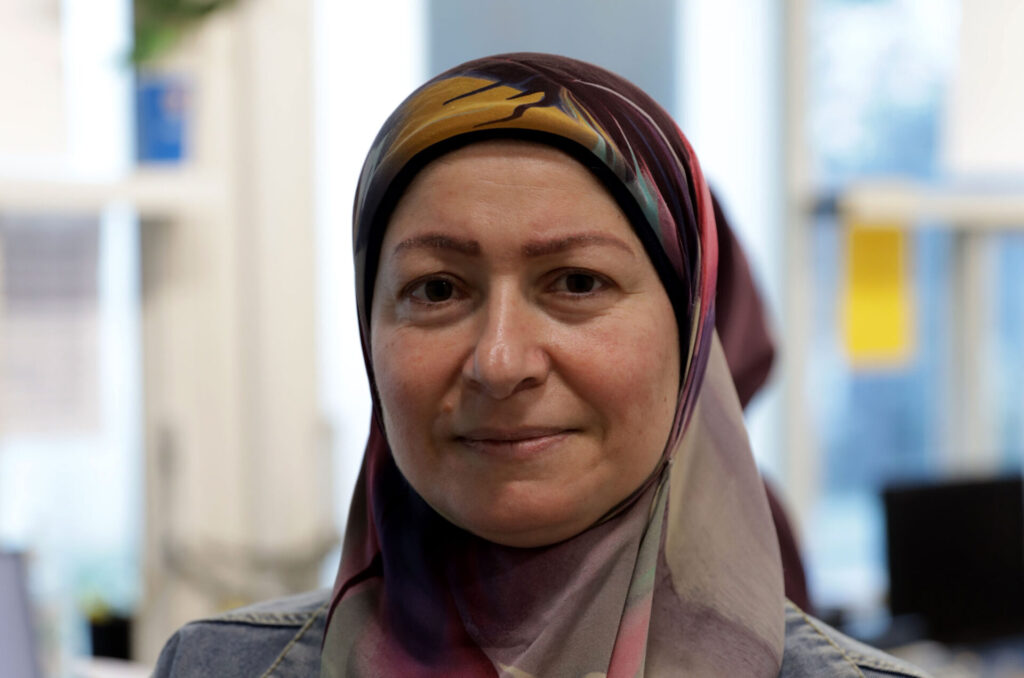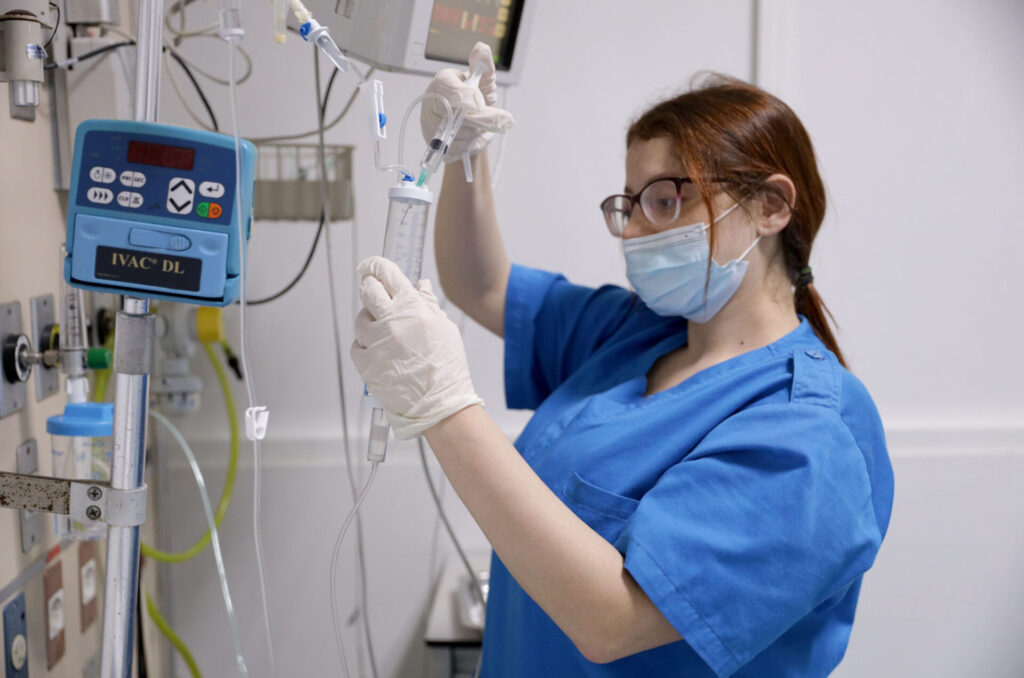HEALTH
Navigating Chemotherapy During the Era of COVID-19
Nov, 2020
“I am feeling some energy in my body! Who knows, I might make it! It will be a struggle, especially in Lebanon. I am worried, but I have faith in God and this kind team.” — Hussein
Anera’s medical donations team in Lebanon works closely with medical experts, doctors and other frontline healthcare professionals. Despite their commitment to provide quality care in the face of a cascade of obstacles, we are seeing the impact of Lebanon’s many crises on these public health heroes. Medical aid is one crucial way for us to offer support.
Based on our thorough needs assessments, Anera has been organizing and facilitating medical aid shipments from its medical partners all around the globe. One of the most recent medical donations to patients in Lebanon was made by the Boston Children’s Hospital, with the support of the Afiya Foundation.
The Boston Children’s Hospital’s shipment includes chemotherapy medications, critical care medications and medical supplies and personal protective equipment for COVID-19 isolation units. Anera organized the distribution of the medical aid in this shipment to three institutions where it is most needed: the American University of Beirut’s Medical Center, the Children’s Cancer Center of Lebanon and Al Makassed General Hospital. We recently spoke to physicians and patients at this last facility, a charitable organization that has been severely impacted by the multiple crises racking Lebanon.
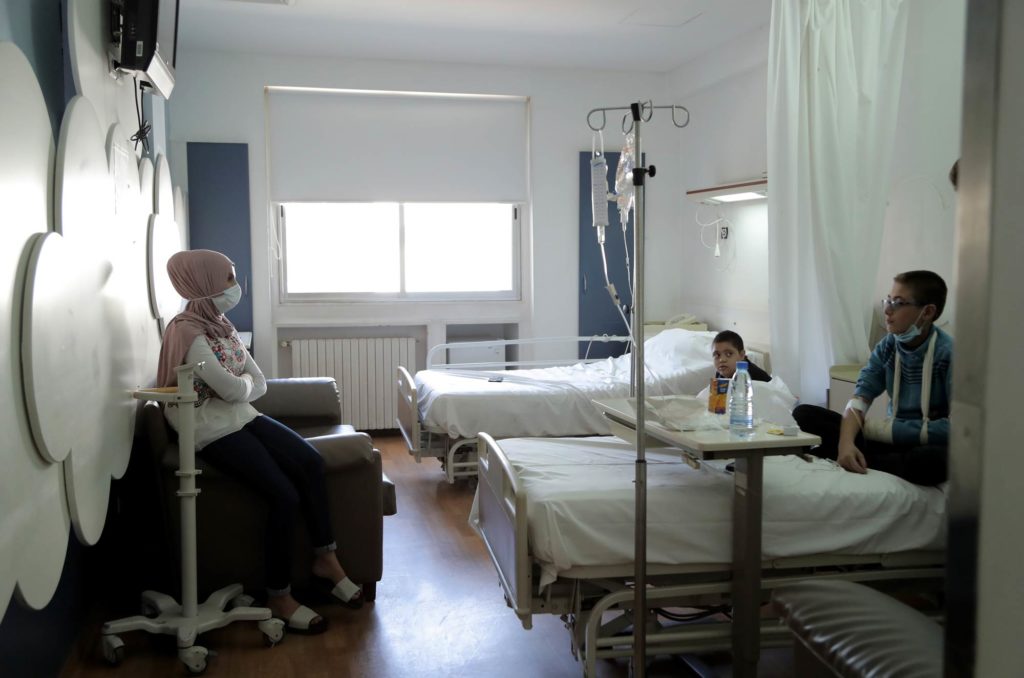

Since its founding in 1930, the Makassed General Hospital, located in Beirut’s Tarik Al Jdidah district, has been committed to making high-quality healthcare universally accessible in Lebanon. Since then, the hospital has grown in size and in its reputation for excellence. The hospital allocates $1 million from its budget for patients in need of financial assistance. In 2015 alone, it provided medical care to more than 15,000 Lebanese, Syrian and Palestinian inpatients and 60,000 outpatients from the three communities.
Al Makassed has a large number of patients with chronic diseases like multiple myeloma, leukaemia and immune deficiencies — meaning many are at a heightened risk of developing life-threatening cases of COVID-19. These are the severely vulnerable.
We spoke to Ahmad Ibrahim, the physician who heads the blood and inflammatory diseases and bone marrow transplants department at Al Makassed. He says,


“Our hospital was greatly impacted by Lebanon’s financial crisis. It is no secret that the lack of US dollars has affected the flow of the medical supplies and services. The treatments, equipment and tests are all priced in dollars. Lebanon is not a manufacturing country — almost everything is imported — so our public health situation here is linked to the status of the dollar, both locally and internationally."
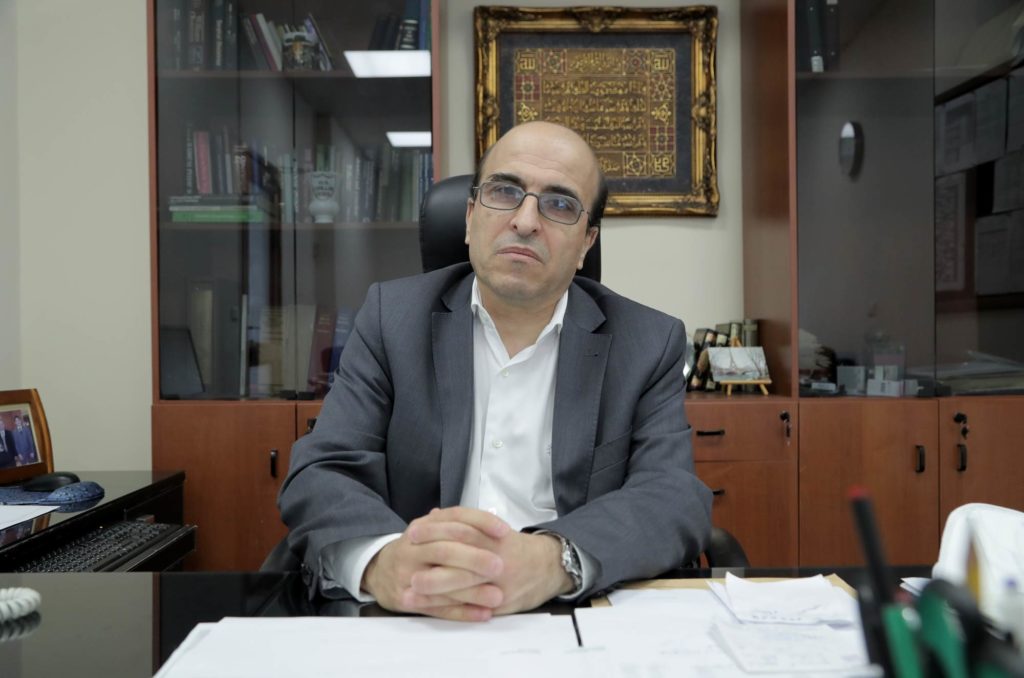

Ibrahim explains what that has meant for his hospital:


“Many of our medication orders have not been delivered yet. Everything is delayed.


“Laboratory tests today are too expensive. Most people can't afford them anymore! All medical bills have tripled."
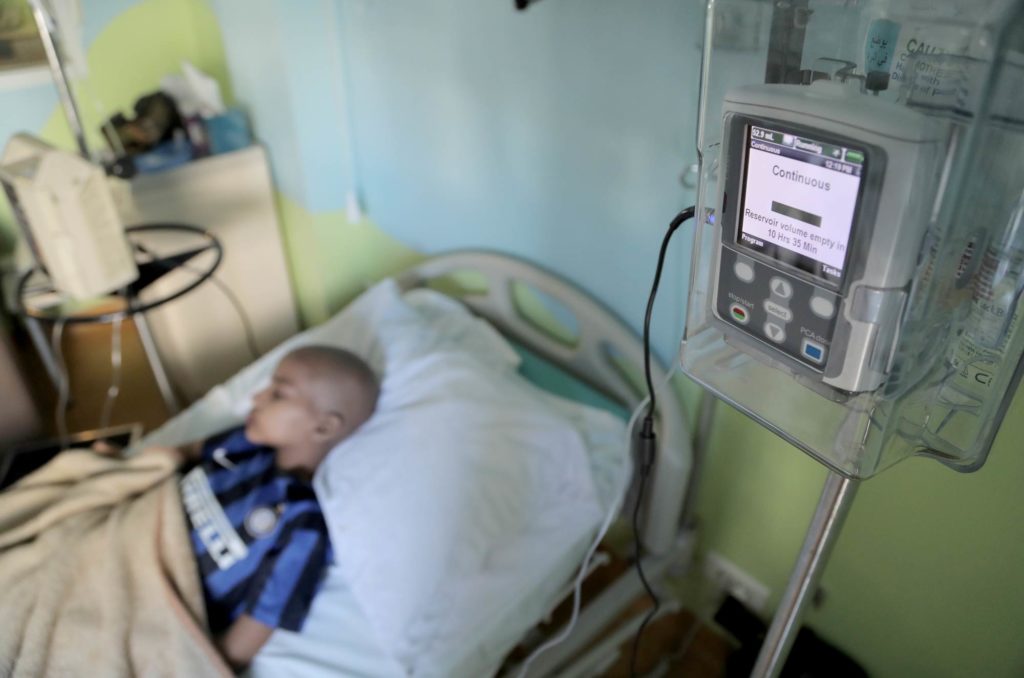

Ibrahim said that this donation of medicines and medical supplies is exactly what they need.


“The support of organizations like Anera and their partners pushes us to keep going and serving those in need.”
Even though the hospital is facing financial issues, they refuse to compromise their quality of service or hygiene and safety measures. Ibrahim explains,


“During this pandemic, we have had to triple our efforts — keeping everything sanitized, running the necessary tests, ensuring that patients are constantly in a sterile environment to avoid infections, sanitizing each and every room on a daily basis. All of this costs a lot of money and it’s harder with COVID-19.”
We spoke with some of the hospital’s patients about their treatments and how the broader situation in Lebanon is impacting their health. Hussein says,


“I was hospitalized for one month for treatment. When I first arrived, I had zero energy. I could not move. But little by little, with the treatment and emotional support of the medical staff here — just having people who care around me — I started feeling a bit like my old self.
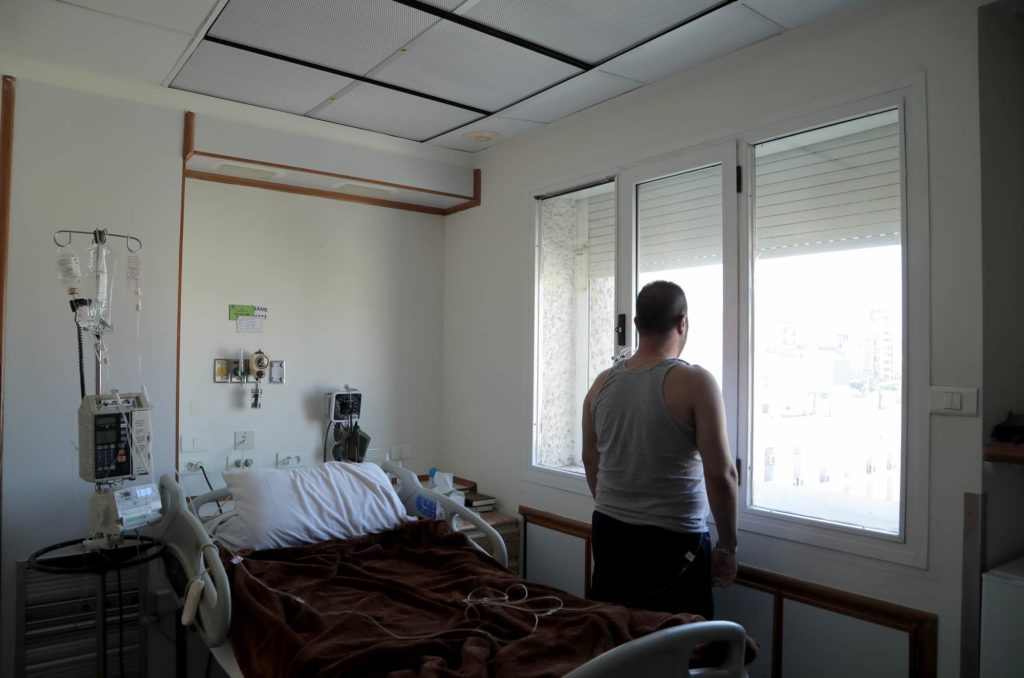



“I am feeling some energy in my body. Who knows, I might make it! It will be a struggle, especially in Lebanon. I am worried, but I have faith in God and this kind team.”


“My [chemotherapy] treatment is for five days. When I checked in it wasn’t available. Of course I got scared that the treatment that might save my life is simply unavailable! Thankfully, the next day it was ready and they prepared me for the chemotherapy.”
Shamma, another patient at the hospital, says,


“I am currently undergoing a second round of treatment. It has been six days and today should be the last [day of treatment]. I am hoping that the results of the next biopsy will be good. I am worried that if the situation in Lebanon gets worse, I will not be able to get my medication.”
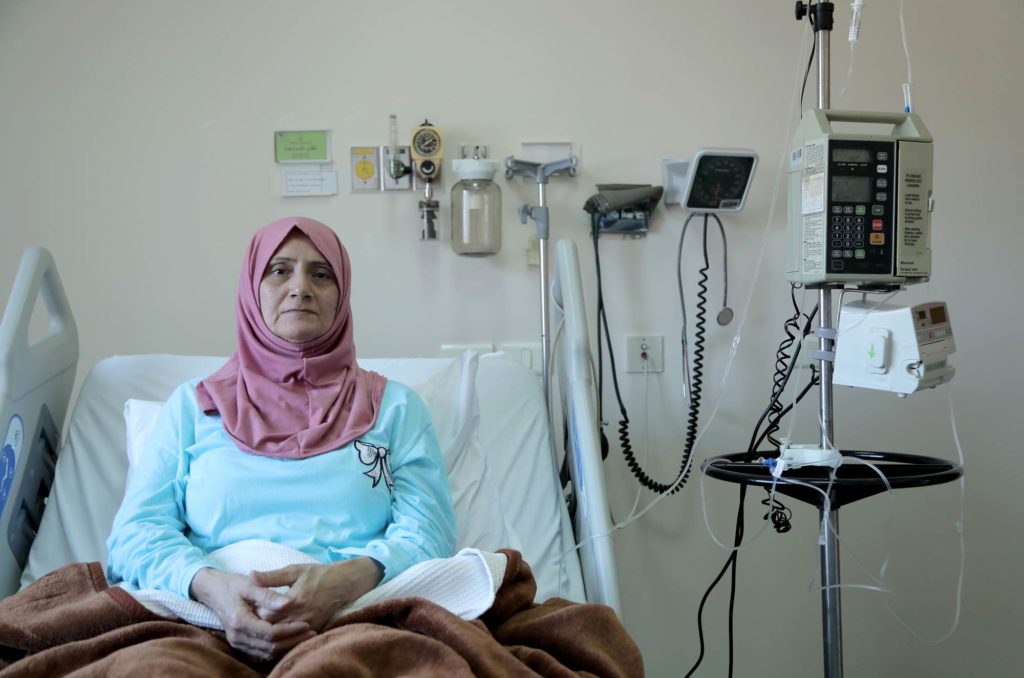

Lebanon’s dedicated medical professionals like Ibrahim and his team are pushing to ensure that their patients receive quality care, despite the growing array of obstacles. But they cannot do it alone. With the support of Anera’s partners like Boston Children’s Hospital and Afiya Foundation, these medical professionals can continue to make life-saving medications available to patients like Shamma and Hussein.

